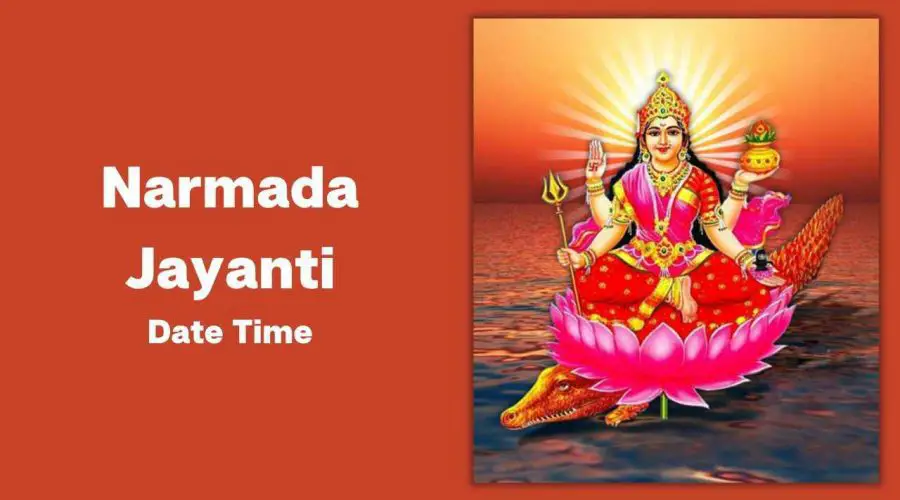Narmada Jayanti 2023 Date, Time, Origin, Legends & Celebrations
Amarkantak’s most important holiday is Narmada Jayanti. It is held during Makar Sankranti in January. Narmada Jayanti happens on Ratha Saptami, Shukla Paksha Saptami in Magh month. The celebration is held yearly in the month of Magh. This day commemorates the arrival of the Narmada River (Maa Narmada) on Earth. There are 999 other rivers in the world, but mother Narmada represents peace. The Narmada begins in Amarkantak and flows into Ratnasagar. According to legend, Shiva created the River Narmada to cleanse the sins of celestial beings (Devas) when they destroyed demons. On this particular day, Maha Aarti is done.
Narmada Jayanti Date 2023
Saturday, 28 January 2023
Origin of Narmada Festival
In addition to Amarkantak, the birthplace of Maa Narmada, Madhya Pradesh also celebrates Narmada Jayanti. This festival is held around the time of the January Sankranti festival. Maa Narmada was born on the Saptami of Shukla paksha in the month of Magh, according to the Panchang. Maa Narmada is one of the sacred rivers that Lord Shiva created to purify the deities’ sins.
Narmada Jayanti Celebrations
People begin preparations many weeks before Narmada Jayanti Mahotsav. The banks of the Narmada are decked and havans are held on this day. On this day, Chunri is offered, and Bhandara is also done.
People travel great distances to take part in the Maha Aarti of Maa Narmada, which is a scene enjoyed by the gods, and the magnificence of this event must be witnessed and remembered for a lifetime. In addition to acquiring Punya, they also bring back the hallowed memories of the Narmada River in all its splendour.
Legends of Narmada Jayanti
After destroying the demon Andhakasur, the gods committed a lot of sins that they wished to purge, so they went to Lord Shiva, who opened his eye. A ray of light erupted from his eye and manifested in Amarkantak as a female named Narmadaq. Lord Shiva then opened his eyes, and a point of light from his eyebrow fell to the ground on the Makhal mountain in Amarkantak.
Narmada continued to perform penance to Lord Shiva, which ultimately pleased him and resulted in her receiving his blessings. In the beginning, gods and goddesses would inhabit her coasts. She would not be destroyed in any circumstance. The stones from this river are venerated as Shivlingas.
Once upon a time, when Lord Shiva was deeply meditating, his heated perspiration began to pour in the form of a river that became known as the Narmada. Two rivers, particularly the Narmada and the Reva, arose from Brahma’s tears when he was unusually upset about something.

